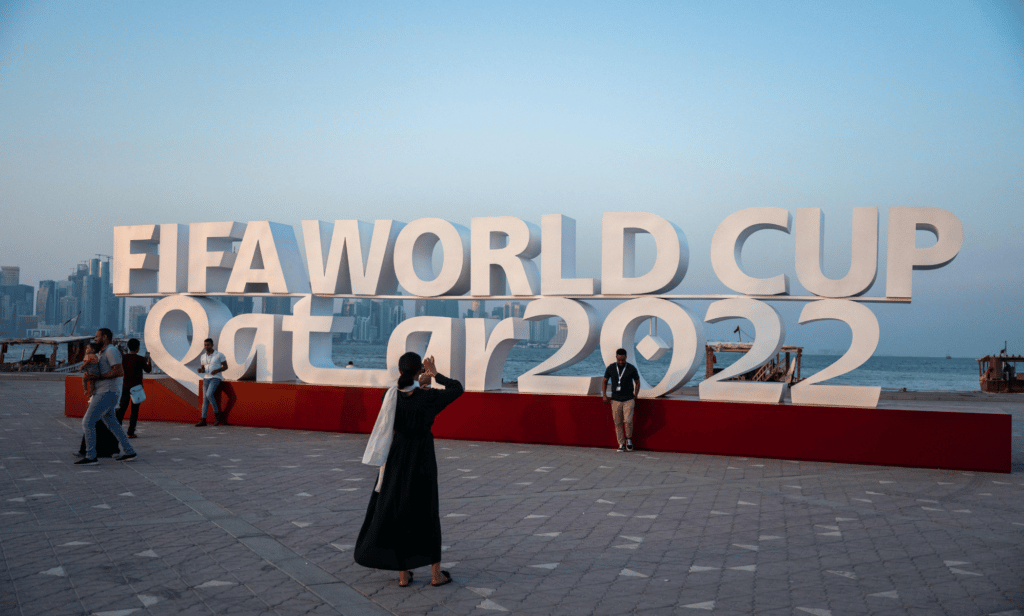Wales footballers won’t be banned from addressing Qatar’s LGBTQ+ rights record, officials confirm

Footballers from the Wales team will be wearing OneLove campaign armbands during the World Cup in Qatar. (Getty Images/Michael Steele)
Football players from Wales will be free to speak out about Qatar’s awful human rights record, which includes criminalising LGBTQ+ people, during the World Cup.
The head of the Football Association of Wales (FAW) announced on Tuesday (1 November) that its players had been briefed on the nation’s appalling human rights record ahead of the World Cup.
Mark Evans, FAW’s head of international affairs, also shared that due to the country’s stance on gay rights a “significant” number of FAW staff had chosen not to go to Qatar.
“We had a briefing with players after the last game with Poland and they were told they will have a forum to speak on any topic they want during press conferences,” he told journalists.
“Some might choose to say something during press conferences, others won’t, it’s up to them.
“They, like us, want all the fans coming over to feel as safe and welcome as possible,” Evans said.
The team’s manager, Rob Page, confirmed the team captain will wear the OneLove armband in support of LGBTQ+ rights.
“The team is determined to wear them. It’s very important to us,” Evans added.

Qatar World Cup organisers ‘commended’ the Australian football players for ‘raising awareness for important matters’ but did not promise to bring forward change. (Getty)
Despite the start of the tournament on 20 November edging closer Evans said FIFA is yet to respond regarding the armbands.
In a bid to ensure players are clued up on the country, Evans explained they have created a WhatsApp group where they ask questions and share relevant news stories.
The red wall have a proud reputation, particularly with how inclusive they are and how they embrace other cultures.
“We will all be going out there with a positive outlook wanting to be a positive force during the World Cup.”
Wales will face the USA in their first match of the group stages on 21 November.
It follows several members of the Socceroos, Australia’s national football team, raising their concerns about the suffering of migrant workers and the criminalisation of LGBTQ+ people in Qatar.
Despite Qatar’s ambassador to the UK confirming that LGBTQ+ couples visiting the country for the World Cup can “hold hands”, homosexuality in the country remains illegal.
Under the country’s penal code it continues to punish same-sex relations with up to seven years imprisonment, while queer Muslim men, under Sharia law, can be punished with the death penalty.
Women also face discrimination in the country and under its guardianship system, they remain tied to a male guardian from whom they must seek permission for key life decisions such as studying abroad.

